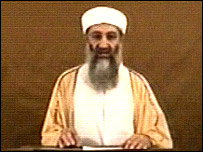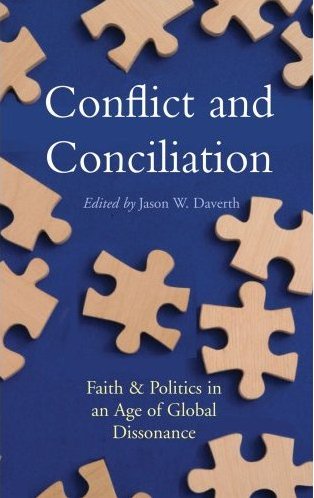Obama, Osama and the Making of a Martyr
It is the height of childish naiveté to believe in Evil with a capital ‘E’. There are indeed all manner of imaginable (and as yet unimaginable) evil acts and ideologies; those that inflict suffering and run counter to a generally shared vision of global justice. Yet no serious student of history can conclude that people themselves are ever truly Evil. The very worst villains of our collective global society, from Hitler to Stalin and, yes, bin Laden, were each seeking to actualize a utopic vision of peace and prosperity. Each has been, therefore, motivated by the very same ideals of goodness embodied in our own Judeo-Christian foundations.
Yet as the old cliché goes, he who lives by the sword must die by it. The moment bin Laden constructed the pseudo-religious framework through which to elevate his Fatwa into the realm of violence, he surrendered any semblance of moral authority he may have once claimed. As both the movement’s primary architect as well as its principal propagandist, he belonged to a class of ideologues beyond conversion, redemption, or reason. Much as Bush saying that “either you are with us, or you are with the terrorists,” bin Laden’s declaration of Takfir against Muslims who failed to support his version of Islam constructed an essentially Manichean worldview in which there was no middle ground.
No matter how truly horrifying have been the acts perpetrated under the al-Qaedist banner, Osama bin Laden was above all a man fighting for salvation. First and foremost the salvation of the House of Saud, then the pan-Islamic nation, and finally the whole of the human race. Fuelled by an inflated perception of his role in the Soviet collapse, resentment of Western politico-economic policies and cultural disdain for modern secular liberalism among Arab nations, the ideological author of al-Qaedism sought to challenge an emergent global order that itself has inflicted untold suffering to the majority of the planet.
While bin Laden’s ideological justification for violence may have been anathema to our own understanding of world peace, it did not emerge in a vacuum. For elevating capitalism to monolithic proportions, Bill Clinton must shoulder some blame for both creating the fertile soil within which al-Qaeda thrived as well as for failing to grasp to full potential of bin Laden’s allure among the deprived and marginalized. For allowing himself to be manipulated time and again into destruction at home and abroad, George W. Bush is destined to fade into obscurity as the unequivocal loser of this epic battle; the Goliath whose very defeat elevated David to mythical status. Yet much as his predecessors, Obama inherited more than just a propagandist; he was left with a genuine threat to the ideals of civil society and global democracy. Were it not possible to capture and contain this threat, I find it difficult to fault him for ordering a kill.
Yet whatever relief we may feel at the ‘resolution’ of this decade-long manhunt, we must remember that, as RAND terrorism expert, William Rosenau, noted in the wake of the Iraq invasion:
Al-Qaeda is a worldview, not an organization. Before 9/11, some parts of the US intelligence community described al-Qaeda as a hierarchical, cellular terrorist group with bin Laden at the centre, barking out orders to his ‘troops’ in the field and plotting attacks around the world. This mistaken perception was a hangover from cold-war era thinking about terrorism ... [rather it] is made up of a politically, nationally and ethnically diverse group of militants who don’t agree on everything but subscribe in general terms to an ideology. Bin Laden’s genius was in packaging and promoting an ideology that found enormous appeal among some elements of the Muslim world, and that allowed militants engaged in local struggles to reconceptualise their fights as part of a broader global struggle.
No matter how inevitable bin Laden’s death may have been, we should be careful not to characterize it as a victory. At minimum, his story serves to illuminate our own failure to create an equitable society in which violent ideologies hold no influence. Yet in a more practical sense, we must understand that his death does nothing to erase his ideas and may contrarily serve to strengthen his adherent’s resolve. Al-Qaeda is not a snake but a hive of bees – cutting off the head does little but inflame the passions of its soldiers who, incidentally, may simply birth a new queen. Rather, if we truly seek an end to this conflict, we must couple his death with our own redemption by acknowledging the harm inherent in capitalist totalitarianism and renouncing violence in all its forms. Without this, all we’ve managed to do is kill an elderly diabetic with a big mouth.












Comments
Re: Obama, Osama and the Making of a Martyr
Thanks for this, Jason.
Post new comment